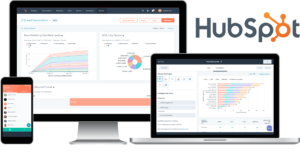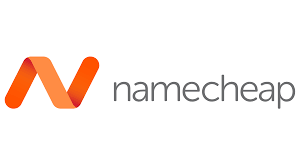In the last few years, artificial intelligence has moved from a niche concept to an essential tool in nearly every digital field. Search Engine Optimization (SEO) is no exception. SEO is not just about keywords and backlinks—it’s about AI-powered search optimization and How Generative AI Is Changing SEO.
Table of Contents
Introduction: A New Era of Search
With the rise of generative AI, tools like ChatGPT, Google Gemini, and Microsoft Copilot are transforming how people search and how businesses optimize their websites. AI SEO tools now help businesses of all sizes—from bloggers to global enterprises—stay ahead of the competition.
In this article, we’ll explore:
- How generative AI is reshaping SEO.
- The best AI SEO tools for every skill level.
- Practical steps to optimize your site in the age of AI.
- Ethical considerations you must keep in mind.
Whether you are a beginner, intermediate, or expert, this guide will give you a solid foundation for mastering SEO in the AI era.
Understanding AI-Powered SEO: What’s New?
Traditional SEO focused on:
- Keywords
- Meta tags
- Link-building
- Mobile optimization
Now, AI SEO tools can:
- Analyze complex search patterns.
- Predict trending keywords before they go viral.
- Optimize content in real-time based on user intent.
- Summarize, rewrite, and even generate entire blog posts.
One of the biggest shifts is the introduction of AI Overviews in search engines like Google, where AI-generated summaries appear at the top of search results—sometimes answering the query before users click any website.
Key Insight:
If your content isn’t optimized for AI Overviews, you could lose significant traffic.
How Generative AI Is Reshaping Search Behavior
AI is changing the way people search for information:
- Voice Search & Conversational Queries:
With AI assistants like Siri, Alexa, and Google Assistant, users now ask full questions instead of typing keywords. - Zero-Click Searches:
AI answers are often displayed directly on the search page, reducing clicks to external sites. - Personalized Results:
AI personalizes results based on location, device, browsing habits, and even search tone.
What This Means:
Optimizing for AI-driven search means targeting questions, intents, and topics instead of just exact-match keywords.
Top AI SEO Tools (For All Levels)
Here are some of the most effective AI SEO tools that cater to all levels:
Beginners:
- Surfer AI
Generates SEO-friendly articles with minimal setup. - Rank Math AI
Built-in AI suggestions for WordPress users.
Intermediate:
- NeuronWriter
AI-driven content planning and SERP analysis. - Outranking.io
Focuses on topic clustering and AI-powered briefs.
Experts:
- MarketMuse
Deep SEO audits, predictive ranking, and advanced AI content planning. - SEO GPT
Custom-trained SEO models for enterprises and large agencies.
These tools analyze competition, predict keywords, suggest internal linking, and even write high-quality drafts.
Actionable AI SEO Techniques
Here’s how you can stay competitive, no matter your SEO skill level:
1. Optimize for AI Overviews:
Write concise, factual, and well-structured content that answers questions clearly in the first few lines of your articles.
2. Use Predictive Keyword Tools:
Leverage AI-powered keyword tools that suggest future-ranking keywords based on trend analysis.
3. Focus on Search Intent:
Match your content to the specific goal of the user—whether they’re looking to buy, learn, compare, or solve a problem.
4. Automate SEO Audits:
Use AI tools to automatically detect site issues, broken links, poor load speeds, or keyword gaps.
5. Humanize Your AI Content:
AI can generate drafts, but always refine them with your human touch. Add personal experience, examples, or opinions.
The Future of SEO: Search Will Never Be the Same
We’re moving toward a world where AI-powered tools can:
- Predict viral search trends weeks in advance.
- Auto-generate optimized content for multiple platforms.
- Create multilingual SEO-optimized posts at scale.
SEO experts are now becoming AI supervisors—managing tools, analyzing results, and making strategic decisions rather than manually tweaking every blog post.
Ethical Considerations in AI SEO
With great power comes great responsibility.
Here are ethical SEO practices in the AI era:
- Avoid auto-generated spam content.
- Always fact-check AI-generated text.
- Disclose the use of AI tools where appropriate.
- Balance automation with genuine expertise and value.
Google’s algorithms still prioritize helpful, people-first content—AI should assist, not replace, human knowledge.
Conclusion
AI-powered SEO is not just a trend—it’s the new standard. By learning how to integrate AI SEO tools into your strategy, you can unlock:
- Higher rankings.
- Better traffic.
- Smarter automation.




